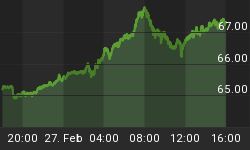With Gulf region equities markets weak and declining, and IPOs shedding momentum, the UAE has announced plans to introduce initial coin offerings (ICOs) with new regulations for 2019 to give companies another avenue for raising cash.
UAE regulatory authorities are eyeing the approval of ICOs—the process of allowing companies to issue cryptocurrency tokens to investors—with regulations scheduled to be introduced in the first half of next year, Reuters cited Emirate regulators as saying.
Details are scant right now, but the chief securities regulatory body in the UAE says it is already working with international advisors to draft regulations, and coordinating efforts for a trading platform with the Abu Dhabi and Dubai stock markets.
The announcement comes amid a sharp drop in major Gulf region equities this week, and amid an overall decline in IPOs in the region.
In the first nine months of this year, deal volumes and proceeds were down significantly from Q3 2017 across the Middle East, Europe, India and Africa. The total IPO activity for Q3 2018 in this region saw a 48-percent decline in terms of deal volume and an 85-percent decline in deal proceeds, according to an EY report.
And one of UEA’s big IPO plans has now been delayed. UAE-based Emirates Global Aluminium was scheduled to IPO this year, but the company has now said it will be delayed due to “unfavorable market conditions”, which “may not improve until later in 2019”.
But it’s about more than a weakening of the IPO momentum and a drop in Gulf equities: The UAE has a reputation for being exceptionally pro-digital, all around.
Perhaps more than any other venue, the Emirates are all over blockchain, or digital ledger technology (DLT). In fact, Dubai’s goal is to become the first government in the world fully powered by blockchain. Late last year, the emirate said it was targeting 2020 as the year by which it hopes to see all visa applications, bill payments and license renewals transacted using blockchain. Related: Investors Panic As Market Correction Continues
The state is also rolling out emCash, a stable digital currency and the equivalent of the UAE dirham (AED). The digital currency comes out of a partnership between emCredit—the primary supplier of credit information in Dubai—and the Department of Economic Development.
Now, they’re working towards wider adopting through the roll-out of point-of-sale devices at government and retail storefronts across the emirate.
Though we don’t have an official launch date yet, this will make them the world’s first city to offer blockchain-based payment solutions to residents.
Beyond this, the UAE Central Bank is also working on a blockchain solution for cross-border transactions with Saudi Arabia, and in June it tapped Ripple digital currency as the choice for cross-border settlements.
The UAE has approved ICOs specifically as “securities”.
For the crypto world itself, the UAE announcement is a mixed bag—but one that could help bring clarity to the very murky ICO world with a potentially trend-setting bit of regulation that is bound to consider ICOs as securities. It’s a mixed bag for the crypto world because ICOs remain attractive precisely because they do not have to comply with relevant securities regulations—so it’s easier to raise cash.
At the same time, this “securities” inevitability might just be where ICOs grow up.
By Michael Kern for Safehaven.com
More Top Reads From Safehaven.com:
















